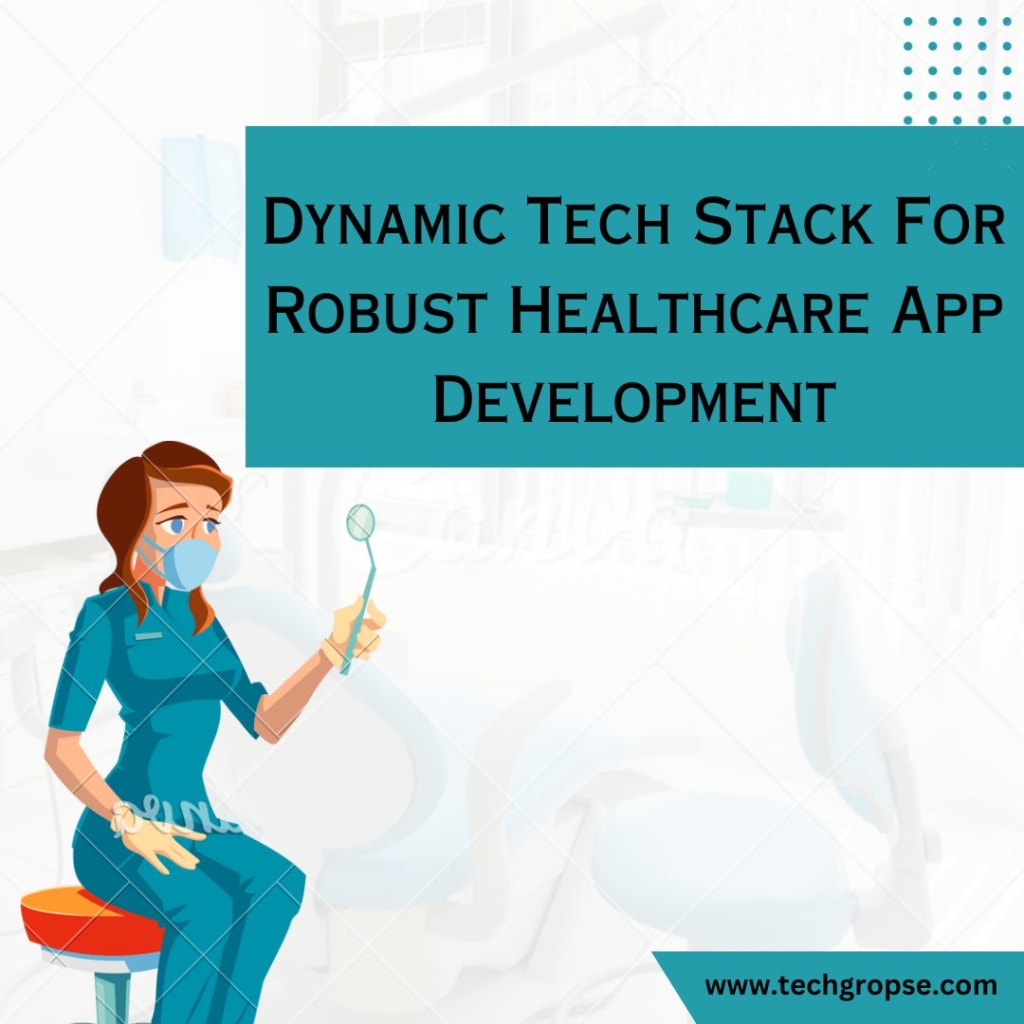Dynamic Tech Stack For Robust Healthcare App Development
TechGropse has worked diligently to be one of the most sought-after companies for Healthcare app development.

What is Tech Stack?
A stack is an arrangement of “things” kept in order on top of each other. So, a technology stack is a set of different technologies stacked together to develop an application.
In other words, a technology stack (tech stack), also called a solution stack, is the combination of technologies developers use to develop, deploy, and run an application. A tech stack summarizes the tools, programming languages, databases, or frameworks a developer needs to design, develop, and run a web application.
As the application of information technology keeps growing in the healthcare industry, so does its variety of implementation. More and more healthcare web apps with different programming languages are created every new day. In fact, many of these apps have seen extreme success and usefulness with patients and even medical staff.
If you decide to build a healthcare application, we will share some healthcare app ideas that will help you craft a professional look application equipped with rich features.
Building a robust healthcare app requires careful consideration of various factors, including security, scalability, performance, and compliance with healthcare regulations. The choice of a dynamic tech stack is critical to ensure a successful and efficient development process. Below, I'll outline a tech stack that can be considered for developing a healthcare app:
Front-end Development:
React.js or Angular: Both are popular and robust JavaScript frameworks for building dynamic user interfaces.
React Native or Flutter: For cross-platform mobile app development, these frameworks allow you to share code between iOS and Android platforms.
Back-end Development:
Node.js or Python: Node.js is known for its asynchronous capabilities, making it well-suited for real-time applications. Python is also popular for healthcare app development due to its simplicity and numerous libraries.
Express.js (Node.js) or Flask (Python): Lightweight web frameworks that are easy to use and ideal for building RESTful APIs.
Database:
MongoDB or PostgreSQL: MongoDB, a NoSQL database, is suitable for handling unstructured data, while PostgreSQL, a relational database, is better for structured and complex data.
Cloud Services and Hosting:
AWS or Azure: Utilize cloud providers like Amazon Web Services (AWS) or Microsoft Azure for hosting, scalability, and robust security measures.
Docker: Containerization helps in easy deployment and scaling of applications.
Authentication and Security:
OAuth2 or OpenID Connect: For secure and reliable user authentication and authorization.
SSL/TLS: To encrypt data transmitted between the app and server, ensuring data security.
Data Exchange and Interoperability:
HL7 FHIR (Fast Healthcare Interoperability Resources): A standard for healthcare data exchange, supporting interoperability between different systems.
Push Notifications:
Firebase Cloud Messaging (FCM) or Apple Push Notification Service (APNS): For sending real-time notifications to users.
Performance Monitoring:
New Relic or Sentry: Implement performance monitoring tools to track app performance, identify bottlenecks, and resolve issues.
Compliance and Security:
HIPAA (Health Insurance Portability and Accountability Act) Compliance: Ensure that the app complies with healthcare regulations for data privacy and security.
Analytics:
Google Analytics or Mixpanel: For tracking user behavior and gathering insights for app improvements.
Remember that the specific requirements of your healthcare app may vary, so it's essential to conduct a thorough analysis and consider the specific needs and goals of the application before finalizing the tech stack. Additionally, make sure to follow best practices for software development and involve experts in healthcare technology and regulations to ensure a successful and robust healthcare app development process.
Conclusion
In conclusion, Healthcare app development involves a range of technologies and tools that work together to create a functional and user-friendly app. The tech stack you choose will depend on your specific needs and goals, as well as the resources and capabilities of your team.
About the Creator
sahil chauhan
Hello,I am Sahil Chauhan, SEO Executive at Techgropse Pvt. Ltd.As we are Mobile app, Web Development, Blockchain Development, On demand App Development Company.






Comments
sahil chauhan is not accepting comments at the moment
Want to show your support? Send them a one-off tip.